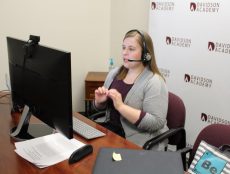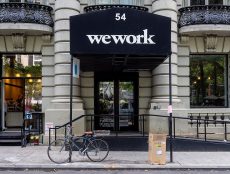
Articles
K-12
Op-Ed
The Future of School Libraries: Equitable Access for All
By Suzi Tonini
June 04, 2020
Schools in urban districts like Denver Public Schools often struggle to fund library programs, which only exacerbates already existing equity gaps for students of color. And while it is painfully true that tight school budgets often result in unstaffed or understaffed libraries, I am hopeful. I sense a revolution in how we serve our students — a revolution in how we walk the talk of equity.
Prioritizing Equitable Library Access for Students
As school libraries evolve and best practices shift accordingly, there is one constant to solve for: equity. All students deserve access to a school library. Libraries support students’ literacy and lifelong learning, help develop their empathy, build their critical thinking skills, and empower them with skills to navigate their world. In other words, libraries provide the tools students need to solve the complex world problems of their futures.
Our students are wonderfully, beautifully diverse in every way – race, culture, sexual orientation, brain wiring, physical ability and lived experiences. Yet the publishing industry, our library collections, our library spaces, and our library staff are just now starting to catch up to the needs of the students we serve.
7 Tips for Future-Proofing the School Library
If we want students to engage with the library, we must create a library experience that honors every student’s humanity. Additionally, we must also ensure they have regular access to its materials, and the expertise of a librarian who can connect them to those materials. What is the road map for reinvigorating and future-proofing our library programs?
1. Conscientious library staff. School leaders should recruit librarians who understand culturally responsive practice, ensure the library is an emotionally safe space, collaborate with teachers and families beyond the library walls, and advocate for all students and their lives as readers.
2. Safe, comfortable space. It is important to create a welcoming, student-friendly space by adding soft seating, collaborative workspaces, and book displays that encourage browsing and reflect students’ interests and identities.
3. Update materials. Librarians should weed outdated and damaged materials out of the collection and promote the use of online research databases, i.e. PebbleGo, Britannica School and Gale databases.
4. Reflect voice, choice, identity. A key strategy is to curate print and digital library collections that reflect student voice, choice, and identity. Librarians should promote “Own Voices” books that provide authentic perspectives of diverse identities, books in students’ first languages, and books students are excited to read.
5. Go digital with eBooks and audiobooks. It is critical to ensure 24/7 access throughout the academic year and summer months by curating a robust collection of eBooks and audiobooks that students can access on any device through platforms like the Sora student reading app.
6. Support your educators. Librarians should provide professional development on how to use eBooks and audiobooks to support students’ special needs. These lessons should target all school leaders and teachers, especially special education teachers and teachers of English language learners.
7. Evolve your programming. Librarians should plan programming and provide tools that encourage creativity, collaboration and communication, i.e. STEAM and makerspace activities like code.org courses and digital citizenship curricula like Common Sense Education.
An Achievable Road Map for Success
This road map is very achievable. I see evidence of progress every day—progress in culturally responsive teaching practices, progress in richly diverse authorial voices that are finally reaching an audience, and progress reflecting on our own biases. There is also progress in creating inclusive and engaging print and digital library collections to meet a growing demand for equitable access to school libraries.
Every child deserves a library. Let’s make it happen.
 Suzi Tonini is the Collection Development Supervisor for Denver Public Schools supporting library programs around the city. Suzi received her M.Ed. in K-12 English as a Second Language, Early Childhood Education and Special Education from George Mason University and a M.A. in Information and Learning Technologies from the University of Colorado at Denver. She is a librarian with twenty years of experience serving ECE-12 students in Virginia and Colorado. Suzi is passionate about ensuring library collections reflect the unique identities and lived experiences of every student and supporting equitable access to high quality library programs.
Suzi Tonini is the Collection Development Supervisor for Denver Public Schools supporting library programs around the city. Suzi received her M.Ed. in K-12 English as a Second Language, Early Childhood Education and Special Education from George Mason University and a M.A. in Information and Learning Technologies from the University of Colorado at Denver. She is a librarian with twenty years of experience serving ECE-12 students in Virginia and Colorado. Suzi is passionate about ensuring library collections reflect the unique identities and lived experiences of every student and supporting equitable access to high quality library programs.
Featured Image: Chuttersnap, Unsplash.









[…] Generation Z is perhaps the first generation to have grown up without associating reading with printed books. For everyone who did not grow up with a digital device in their hands, books are the most natural thing when it comes to reading. That’s precisely why reading books remains of the utmost importance in our education system. Indeed, experts have measured greater cognitive mental stimulation and brain exercise through the process of reading. Additionally, reading improves communication skills as the more one reads, the more vocabulary and knowledge one can acquire. It also enhances writing abilities and focus, making it easier to convey a message. Creative individuals also note that reading books improves their imagination and overall sense of empathy, increasing emotional intelligence in the process. […]